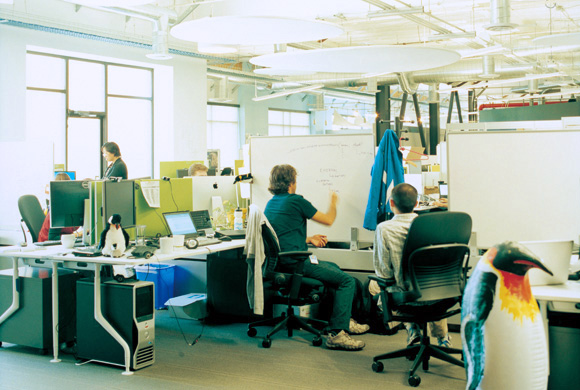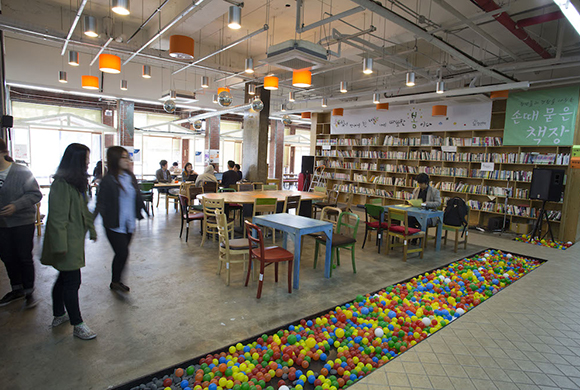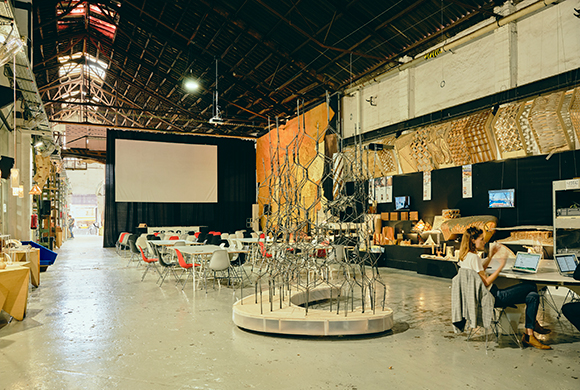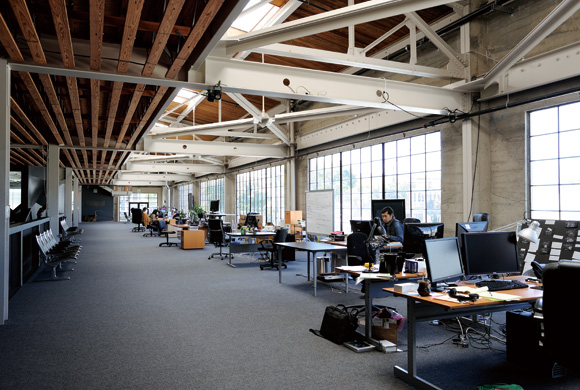Workplace
Mar. 7, 2016
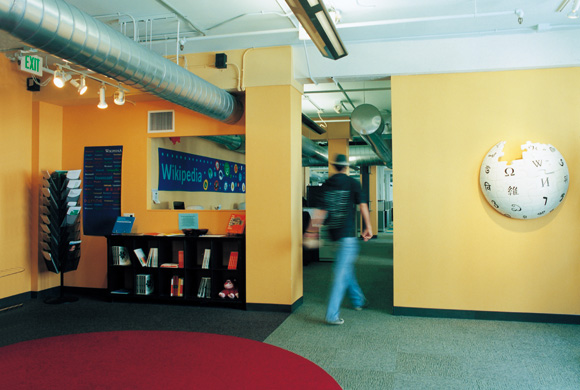
Creating a highly public place to capture the desire for both external and internal self-realizationA
The NPO Wikimedia Foundation— the operator of free encyclopedia Wikipedia
[WIKIMEDIA FOUNDATION] San Francisco, California, USA
Developed in 285 languages from around the world, almost anyone who uses the web is familiar with Wikipedia. Very few people, however, are familiar with the Wikimedia Foundation, which actually operates the site. When Wikipedia first began in 2001, it was very much a grass roots movement.
“In fact, another project had started ahead of Wikipedia, and also called itself a system where anyone can edit articles,” says Jay Walsh, Head of Communications. “Wikipedia then grew very rapidly, so that within three years several million people were using it. It had surpassed the founder’s ability to cover the costs with his own funds, so we needed to do some fundraising and establish an NPO.”
The original office was in Florida. However, the organization was a simple one, and was not able to meet the desire for functionality that was coming from all around the world. The number of users continued to expand, so after two years in 2005, the office was moved to San Francisco.
The reason for selecting it was that it was thought to be a place where talented young people would be easier to find. It was also thought that this would be a good place to solicit donations for the project.
“The difference between the Wikimedia Foundation and a normal organization is that, with a small number of staff, we’re providing the huge infrastructure for one of the world’s top ten sites in terms of access numbers,” Mr. Walsh says. “What makes it possible is the support of some 80,000 volunteers from around the world. So it’s a quite different construction from the normal, in that we have the office and the community of volunteers all working together.”

WIKIMEDIA FOUNDATION
Founded 2003
Income: US$27.5 million (donations, 2012)
Staff: some 120 (2012)
https://www.wikimedia.org

Jay Walsh
Head of Communications
Served as PR manager for the Canadian Broadcasting Company (CBC), board member for a Toronto NPO, head of communications for the Nova Scotia College of Art and Design before taking his current position. Involved in leads a team of communications managers at the Wikimedia Foundation.
Wikipedia is not created in this office. The employees do not directly edit or write the entries; rather, it is the worldwide Wikipedia community that supports the writing in 285 languages. So it’s truly an international cooperative effort.
When people from outside the office enter, there is no need to sign a confidentiality agreement. There are desks available so people from the community can just casually arrive and work on editing projects. They regularly host brown bag lunch meetings to talk about subjects and projects.
Practically speaking, almost all projects are pushed forward by the community members. The Wikimedia Foundation rarely hands down a decision. The democratic process is important and decisions are made jointly.

To convey the value of action, a variety of novelty items and publicity materials in many languages have been created.

The worldwide staff numbers 120, with about 90 in this office. The office is in renovated old building in the center of San Francisco. Some desks and chairs are donated.
 360°View
360°ViewThe worldwide staff numbers 120, with about 90 in this office. The office is in renovated old building in the center of San Francisco. Some desks and chairs are donated.
The employees consider plans to increase the number of volunteers, should the number of editors decrease, as well as work on improving the system. Of the 120 staff today, almost all came via mid-career recruitment. Many of them have had high-level careers. Some come from advertising agencies, others were fundraisers for other foundations, anyone who wasn’t completely satisfied with their last job and desired to work on a social mission might work here.
The work volume is huge and basically unending, and the salaries are not high. However, the staff are helping to spread the democratic process of making intellectual property open source, so there is the commitment to an ideology. “At work, an important part of our style is that achievements are met with mutual congratulations,” Mr. Walsh says. “We share the decisions, and we share the joy of achievement.”
Creating a strong management is not stressed, but building a public, high level of collaboration is. The Wikimedia Foundation instead proves that they can draw a high level of autonomy from their staff.
From WORKSIGHT 03(November, 2012)

A meeting room for 10-20 people.






